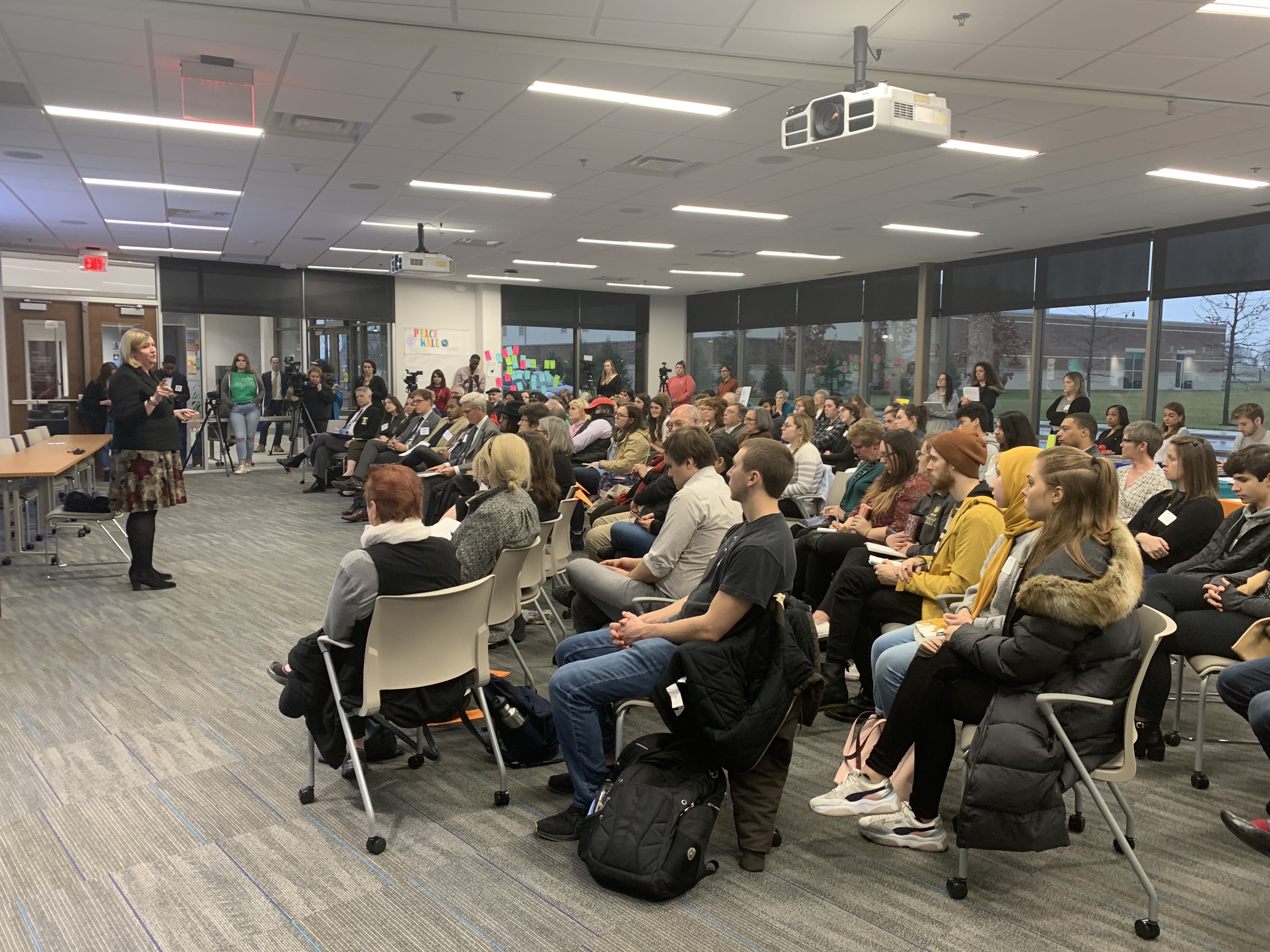Let's Talk Human Rights

In the News | Six Months On: Gun Violence Forum
By Bailey Kantner
Six months after the mass shootings in Dayton and El Paso, we continue to remember, mourn, and call for change. On the half-year anniversaries of the two shootings, which occurred less than 24 hours apart, the Human Rights Center and Center for Social Concern co-hosted a forum to memorialize victims and advance the conversation on ending gun violence. This event coincided with National Gun Violence Survivors Week, and although 2020 has barely begun, more gun deaths have already occurred in the U.S. than will occur in peer countries during an entire calendar year.
The forum brought together community members, local advocacy organizations, civic leaders, and policy experts. The first session featured Christina Garcia, the Director of the Crimes Victims Program at Las Americas Immigrant Advocacy Center in El Paso and Barbara Frey, a senior lecturer at the University of Minnesota and former UN Special Rapporteur on human rights violations committed with small arms and light weapons. Jeff Schmitt of the University of Dayton School of Law also participated in this educational session, providing clarity on relevant federal and state-level jurisprudence. Key takeaways from the session include:
- International human rights law does not include a right to bear arms; US is an outlier on this issue.
- Countries are obliged under a variety of human rights standards to regulate the ownership and use of firearms by civilians via licensing requirements focusing on such features as age, mental health, and criminal history.
- US constitutional law does not provide for complete bans on firearms but does allow for a wide range of control and regulation. The Ohio constitution states that "the people have the right to bear arms for their defense and security." Ohio courts have upheld various kinds of restrictions and regulations on this right.
- El Paso victims and relatives of victims are in a complicated position; many are not US citizens or Texas residents, and so do not have clear access to the victims advocacy services administered by the state.
A second session, structured as a community roundtable, brought together Dayton civic leaders including Mayor Nan Whaley, Senator Peggy Lehner, Governor Bob Taft, and Dayton Police Chief Richard Biehl. Participants from Dayton Children’s Hospital, Racial Justice NOW!, Artemis, and YWCA Dayton added their reflections on the differential impacts firearms have on women, children, and communities of color. To close the evening, Oregon District shooting survivor Dion Green offered a prayer, and a performance by UD’s Common Good Players honored victims of gun violence. In her reflection during the community forum, Mayor Whaley expressed, “It’s been difficult. But it’s been amazing to see the kindness, the support, and the advocacy that’s come from this community.”
See the articles, below, on the gun violence forum and the unwavering resilience of those pushing for change:
Oregon District shooting: ‘Shocking that 30-second event has had this impact’
Dayton Daily News
Six months after Oregon District shooting: UD forum fights to end gun violence
Dayton 24/7 Now
Mayor Nan Whaley reflects on changes and inaction, six months after mass shooting
WDTN
Live Coverage
Channel 2
6 months after Oregon District shooting: ‘We are healing together’
Dayton Daily News
University Of Dayton Human Rights Center To Host Forum On Gun Violence
WYSO
For more information on this event, please visit our website.
